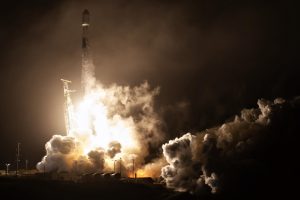Key Takeaways
- Italy is considering a $1.6 billion contract with Starlink, but the decision is paused due to mixed reactions.
- Defence Minister Guido Crosetto emphasizes evaluating Starlink on its technical merits rather than Elon Musk’s political connections.
- Opposition parties express concerns about aligning national security with Elon Musk, given his ties to U.S. politics.
- Tensions rose after Musk’s commentary on Starlink’s critical role in Ukraine, leading to international diplomatic discussions.
- Musk clarified that Starlink would not be used as a bargaining tool, despite personal disagreements with Ukraine policy.
- Despite political hesitations, Italy’s League party supports Starlink for its superior technology and encrypted communications.
- Italy must balance Starlink’s technological advantages with potential political repercussions.
In the rapidly evolving landscape of global communications, Italy finds itself at a crossroads with a significant decision: whether to embrace Starlink, SpaceX’s satellite internet constellation, in a $1.6 billion, five-year contract. This decision, however, is not merely a technical one. It is imbued with geopolitical and political nuances that reflect broader trends in how nations strategize around emerging technologies. As Italy contemplates this high-stakes decision, several key factors are at play that highlight the intersection of technology, politics, and national security.
The Proposal: Starlink’s Potential in Italy
Starlink’s Technological Draw
At the heart of the discussion surrounding Italy’s potential contract with Starlink is the technology itself. Starlink’s constellation of low Earth orbit satellites promises unparalleled internet speed and coverage, offering significant advantages for national defense and secure communications. The Italian co-ruling League party has voiced strong support for Starlink, arguing that its technological prowess, especially its encrypted communication capabilities, surpasses competitors like Eutelsat — a Franco-British satellite operator. For sectors such as national defense, where secure and reliable communication is paramount, Starlink presents a compelling option.
Political Overtones and Challenges
Weighing Political Connections
While the technical merits of Starlink are evident, so too are the accompanying political overtones. Italy’s Defense Minister, Guido Crosetto, has urged for an evaluation based solely on the system’s technical potential, warning against letting Elon Musk’s political affiliations influence the decision-making process. Musk’s relationships, especially his ties to U.S. President Donald Trump and his high-profile persona, have sparked debate within Italy’s political sphere, particularly among opposition parties concerned about entrusting national security to a foreign entity linked to American political interests.
Global Implications and Diplomatic Sensitivities
The Starlink debate gained further complexity when Musk’s comments on the role of Starlink in supporting Ukraine’s military communications stirred international tensions. Musk remarked that Ukraine’s frontline would collapse without Starlink, a statement that drew accusations from Poland’s Foreign Minister, suggesting that Musk could use the service as a geopolitical bargaining tool. Musk quickly clarified that Starlink would never be turned off as a negotiation tactic, but the incident highlights the intricate web of global relations interwoven with technological advancements.
Navigating the Geopolitical Landscape
A Quest for Balance
Italy’s dilemma underscores a broader narrative: the challenge of navigating the geopolitical landscape where technological advances come bundled with potent political influences. As Italy weighs Starlink’s technical strengths against potential political risks, the decision may set a precedent for future tech partnerships in the country. The case emphasizes the need for objective assessment, as stated by Crosetto, urging the separation of technology from political personas.
Considerations for National Security
Italy’s assessment of Starlink also points to larger questions surrounding national security and reliance on foreign entities. The concerns raised by opposition parties about dependency on an external company for critical infrastructure reflect a global unease about maintaining sovereignty in an interconnected digital age. Italy must consider not only the immediate benefits offered by Starlink’s state-of-the-art technology but also the long-term implications for national security and political autonomy.
A Blueprint for Future Decisions
As the discourse over Starlink unfolds, Italy stands at a pivotal moment that could influence its role in the technological arena. The outcome of this debate may serve as a blueprint for how other nations approach similar dilemmas, balancing technological benefits with the labyrinthine politics that accompany global tech partnerships. By closely examining both the technical offerings and the broader geopolitical stakes, Italy can forge a path that aligns with its strategic interests, upholding national security without compromising on technological progress.





